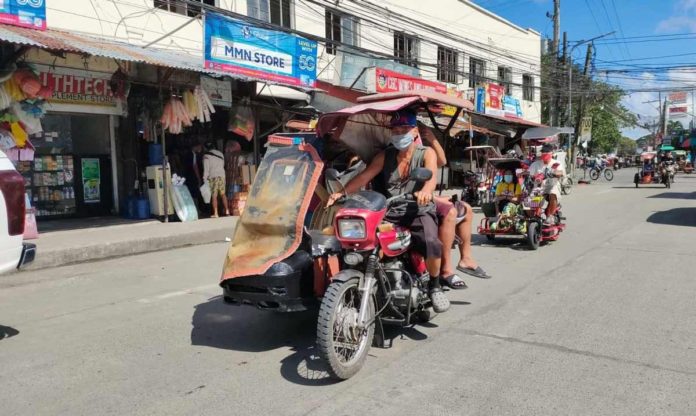
BY GEROME DALIPE IV
ILOILO City – The City Council passed an ordinance that will regulate and manage the routes and operations of tricycles within the city.
The council approved last week the “Tricycle Franchising and Regulations Ordinance of Iloilo City”.
Under the ordinance, the city government will issue a total of 2,618 tricycle franchises to cover the 33 approved routes to ply in seven districts in the city.
Under the ordinance, all tricycle drivers and operators are required to operate within the fixed route granted in their franchise.
The city government will also issue tricycle franchises valid for three years. The tricycle operators will also be issued the motorized tricycle operators permit (MTOP) to determine their authority to operate a tricycle for public transport. It will be valid for one year and renewable every year.
They are also prohibited from operating on national highways according to the provision of the existing law. The city government, through the Public Safety and Traffic Management Office (PSTMO), will adopt color coding for each tricycle operating in each district.
Mere violations of traffic rules and regulations are not grounds for impounding the tricycle unit, except when the tricycle is used to perpetrate a crime, operates without the valid franchise or operator’s permit, or operator his unit using a fictitious operator’s permit.
Tricycle drivers who operate the tricycle for hire without a valid franchise or operator’s permit will be fined not more than P1,000.
The ordinance states that the maximum number of units per fixed route may be adjusted as demand arises or other circumstances that would affect the viability of the franchises awarded or their ability to cater to the riding public.
Is it profitable for drivers?
Councilor Romel Duron, the former transportation committee head, voiced his apprehension.
“This is a half-baked ordinance. It seems that they are killing the routes of our tricycle drivers,” said Duron, a former hearing officer of the Land Transportation Franchising and Regulatory Board (LTFRB-6).
Duron said the council’s transportation committee did not even conduct a survey to determine the viability or profitability of each route and the passenger demand.
“They said they conducted consultation for three years, but that was useless if the people you consulted did not also understand how to make a route plan. I am not satisfied. They did not conduct the proper way of creating routes,” said Duron.
When the council’s transport committee consulted tricycle associations, Duron said it failed to produce scientific results.
“If you give a route, you should see if it is viable or profitable for tricycle drivers. They merely assigned the route to the tricycle associations because they said it was experimental. They should come up with a study on load factor to determine the passenger demand,” said Duron.
‘Carefully studied’
Councilor Sedfrey Cabaluna, the council’s transportation committee chairman, defended the passage of the tricycle franchise ordinance.
He stressed the tricycle route plan was carefully studied to ensure the smooth flow of traffic and enhance public safety while ensuring the profitability of the tricycle operators.
Although he admitted to not taking a sample-size approach, Cabaluna pointed out that his committee conducted a study for each tricycle association in the city.
“We took the universal route on each tricycle route, talked and consulted with each of them in crafting this ordinance. They (tricycle drivers) were the ones who decided whether or not those routes were profitable or not. Ultimately, this is the best that we could offer,” said Cabaluna./PN





